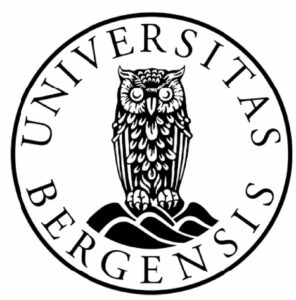Local Impact in the Green Transition
- 04/12/2024
- 9:00 am
- Hotel NH Brussels Carrefour de l'Europe
Norway’s vast coastlines hold untapped potential for sustainable energy and economic growth, but how will local communities benefit? With the recent launch of the EU-Norway Green Alliance, there is a renewed focus on utilizing Norway’s natural resources to advance the green transition.
As a nation with the second longest coastline in the world, Norway is well positioned to lead the way in sustainable ocean development and has the largest potential offshore wind power in Europe. However, utilisation of natural resources is lacking behind other EU countries, despite the technological advantage from decades of offshore energy developments. A new EU-Norway Green Alliance will see greater collaboration around energy, industry and climate change, and specifically targets harvesting ocean wind.
Social acceptance of the green transition and renewable energy depends on whether the projects have national and local benefits such as domestic energy supplies, use of domestic technology and economic advantages through local value chains. Does foreign ownership play a role in local value chain development and benefit small communities? Could the Green Alliance help or hinder coastal communities to develop sustainably within the green transition?
One key industry for both Norway and many other European countries is the aquaculture sector. Norway is the largest exporter of fish and aquaculture products to the EU and seven of the largest markets for Norwegian seafood are EU nations. However, increasing alternative activities along coastlines could dampen further opportunities for growth. The role of governance and diplomacy for managing coastlines is unclear but ocean governance is a growing concern for the European Commission. What are the mutual learning opportunities between Arctic and non-Arctic states within governance of the oceans and coastlines?
Program
Anu Fredrikson
Executive Director, Arctic Frontiers
Sverre Ole Drønen
Senior Advisor, University of Bergen
Nils Kristian Sørheim Nilsen
Director, North Norway European Office
This panel will explore the latest technological advancements in the maritime and energy sectors and how the EU-Norway Green Alliance can drive sustainable development. Discussions will focus on leveraging cooperation to accelerate offshore wind power and other green innovations, addressing both opportunities and challenges in the evolving landscape.
Confirmed Speakers:
Kjell Richardsen, Business Consultant, Berlevåg Industrial Park, Finnmark, Norway
Alina Kovalenko, Researcher, Maynooth University, Ireland.
Markus Rautanen, VTT Technical Research Centre of Finland Ltd.
Kai Simon Eikli Yuen, Norwegian Shipowners’ Association
Oliver Wilson, BlueMission Atlantic & Arctic Programme Manager, Marine Institute, Ireland.
Moderator: Anu Fredrikson, Executive Director, Arctic Frontiers
This panel will examine the importance of social acceptance in the green transition and the potential benefits for local communities. Topics will include the impact of new energy projects on local economies, the development of domestic value chains, and how the Green Alliance might influence sustainable growth in coastal and northern regions.
Confirmed Speakers:
Rolf Laupstad, Mayor of Berlevåg Kommune, Finnmark, Norway.
Kristiane Mauno Krystad, Head of Communcations, Arctic Energy Partners.
Marte Samuelsen Skogen, Researcher, University of Bergen.
Sharon Nytte, Independent Researcher, United Kingdom
Ninon Gautier, Head of Monitoring, Evaluation and Research at WYG Consulting
Moderator: Toby Wardman, European Commission’s Scientific Advice Mechanism
Recent and ongoing global developments and geopolitical changes have made the Arctic a key region for science and diplomacy and governance.
Managing and governing the intersecting human activities and the needs to protect the coasts and oceans requires research, policy and legal frameworks. Can science diplomacy act as a tool to negotiate and ensure sustainable development of the coastal regions?
Confirmed Speakers:
Raphaël Goulet – Deputy Director for International Ocean Governance and Sustainable Fisheries, Directorate-General for Maritime Affairs and Fisheries, European Commission.
Rasmus Bertelsen, Professor of Northern Studies, UiT – The Arctic University of Norway.
Aiste Klimasauskaite, Postdoctoral Researcher, University of Bergen
Alexandra Philippe, European Bureau for Conservation and Development (EBCD), Belgium
Inuuteq Holm Olsen, Head of Mission, Greenland Mission to the European Union
Moderator: Anu Fredrikson, Executive Director, Arctic Frontiers
Partners
